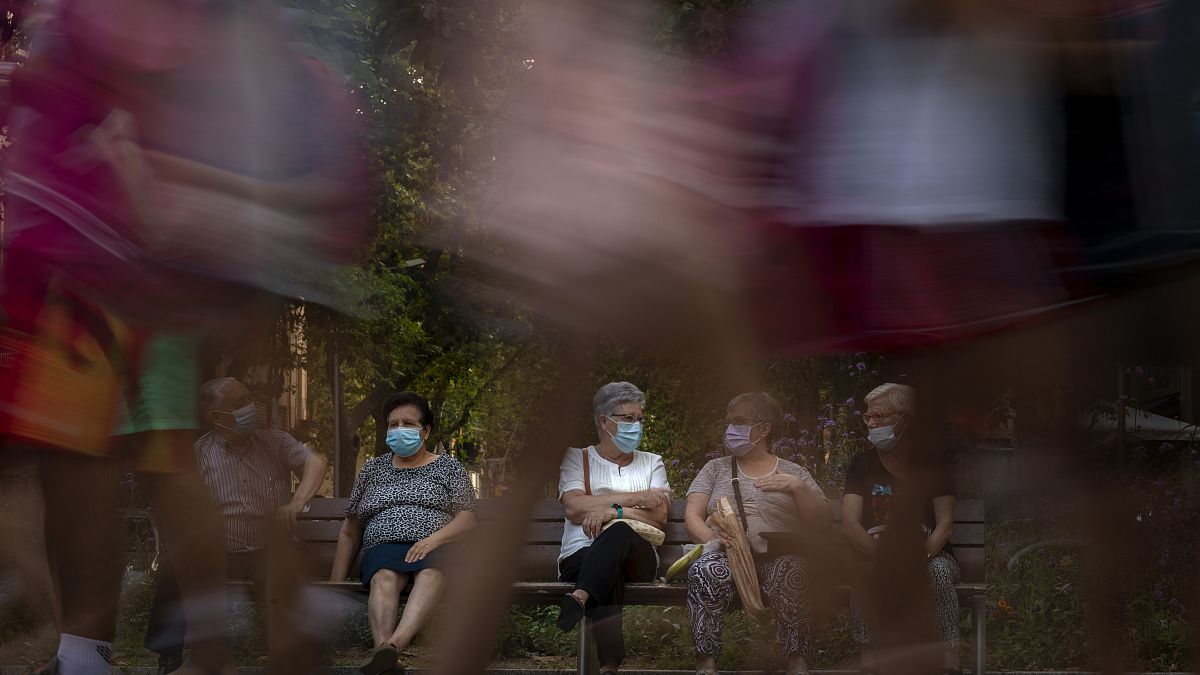What are the key talking points across Europe this week?
Fresh COVID-19 outbreaks have been hitting in parts of Europe this week.
In Germany, authorities have put several countries under strict lockdown again, after an explosion of infections was seen around a meat processing plant.
The Belgian Prime Minister warned of a rebound of cases and, in Portugal, officials fear that a second wave has already hit Lisbon and the Tagus Valley.
Those were all elements of a larger picture that, according to the World Health Organization (WHO), looks quite depressing.
"In the first month of this outbreak, less than 10,000 cases were reported to WHO," explained Tedros Adhanom Ghebreyesus, WHO's director-general.
"In the last months, almost 4 million cases have been reported. We expect to reach a total of 10 million cases within the next week."
On Thursday, WHO Europe said transmission of COVID-19 was accelerating in Albania, Armenia, Azerbaijan, Bosnia-Herzegovina, Kazakhstan, Kosovo, Kyrgyzstan, Moldova, North Macedonia, Sweden, and Ukraine.
Money matters
In the meantime, we're seeing a lot of people working hard to overcome divisions over the EU's coronavirus recovery package.
This week, French President Emmanuel Macron travelled to The Hague, which has become the lion's den of the group of naysayers.
The aim is, of course, to find a compromise ahead of the next EU summit in July following a rather unsuccessful videoconference a week ago.
Apparently, those virtual get-togethers don't seem to be yielding much at all.
Also this week Eurozone finance ministers joined the race to lead the Eurogroup, which will play a crucial role in the economic recovery. Spain's Economy Minister, Nadia Calviño has become the front runner in the race to succeed Mário Centeno as the next Eurogroup president. She was the first to announce her candidacy, followed by Ireland's Paschal Donohoe and Luxembourg's Finance Minister Pierre Gramegna.
EU-China relations
This week, the EU had its first video-summit with China since the beginning of the pandemic.
And the meeting was tense and only revealed widening differences on almost everything.
On Hong Kong and the threat of a new, no-nonsense security law, EU leaders were particularly undiplomatic in their diplomatic assessment:
“The national security law risk seriously undermining the 'one country two systems' principle and Hong Kong's high degree of autonomy we wish to see stay in place. (…) So we also conveyed that China risks very negative consequences if it goes forward with imposing this law," said Commission President Ursula von der Leyen.
Germany EU presidency preparations
All these major problems from the pandemic to the economic recovery, from relations with China to Brexit to climate change, will soon fall onto the plate of Angela Merkel.
On July 1st, Germany takes over the EU presidency, and expectations are already very high that only Europe's longest-serving leader can fix the problems.
"Her most immediate challenge still is, let's not forget that, convincing the so-called frugal four countries that they should accept her and French President Emmanuel Macron's European recovery plan, which includes common European bonds," says Constanze Stelzenmüller, a senior fellow at the Brookings Institution.
This year will mark Angela Merkel's second council presidency after 2007 when she played a central role in the negotiation of the Treaty of Lisbon. Could she be again the saviour of Europe or is she a lame duck, now that she has already announced her retirement for next year?
"I think the lame duck thing has been somewhat disproven by her management of the pandemic," says Stelzenmüller.
She notes that her poll numbers have rocketed upwards. She's again the most popular politician in Germany. And so, will she save Europe?
"I would say that her experience, her knowledge of the other European leaders and I think her empathy - particularly for the smaller countries and the newer Eastern European countries - is really important as a prerequisite for being able to broker a consensus," said Stelzenmüller.
Arguably Merkel's biggest achievement was Germany's acceptance of common European debt, a historic reversal.
"This isn't the Hamiltonian moment some people have called it, because we're not giving the EU taxation powers, we're not giving the EU powers to emit bonds in perpetuity," explains Stelzenmüller.
"For the Germans and certainly the German conservatives whom Angela Merkel leads, this is a truly historic reversal and that took account for a great deal. And I would say particularly with the frugal four governments."
Merkel has already announced her retirement for next year. Some observers doubt this. So who will be German chancellor at the end of next year?
"I can tell you one thing: it's not going to be Angela Merkel. I think the woman really wants a break and she deserves it."
Something for the weekend
Germany is known for a lot of things – like the longevity of its chancellors and the country's excitement for the Eurovision Song Contest.
Which is remarkable, as German performers routinely end up among the worst.
This year COVID-19 spared Germany further national embarrassment, as the world's biggest music competition was cancelled.
But it has such a cult status that the US streaming giant Netflix produced a comedy movie that is coming to your home soon.
It's called “The Story Of Fire Saga” and follows singers Lars Erickssong and Sigrit Ericksdottir as they represent Iceland in the contest.
Hollywood poking fun at Europe – and for once they have a point.


